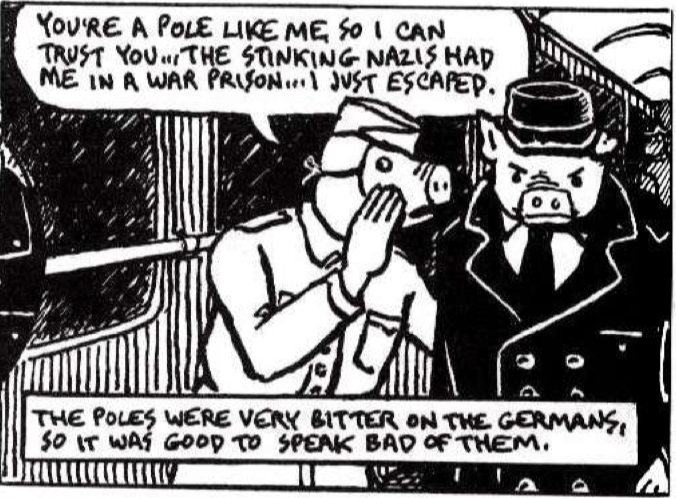ch3 Best Panel
I actually found the panel where Vladek gets made for Art not eating everything on his plate to be the most important panel. In this medium square shaped panel, Vladek scolds art in what we can only assume is a harsh tone to finish everything that is on his plate. This current storyline fits in with the story overall look at the holicost by showing how Vladek could have been effected in smaller ways. For example, he cherishes food more and doesn’t want Art to waste any. I saw this as important because it makes a story about the holicost easier to understand as the reader can easily see this behavior as corrilating to the Vladek’s experience with a lack of food in the holicost.


 Page 64 Panel 3
Page 64 Panel 3